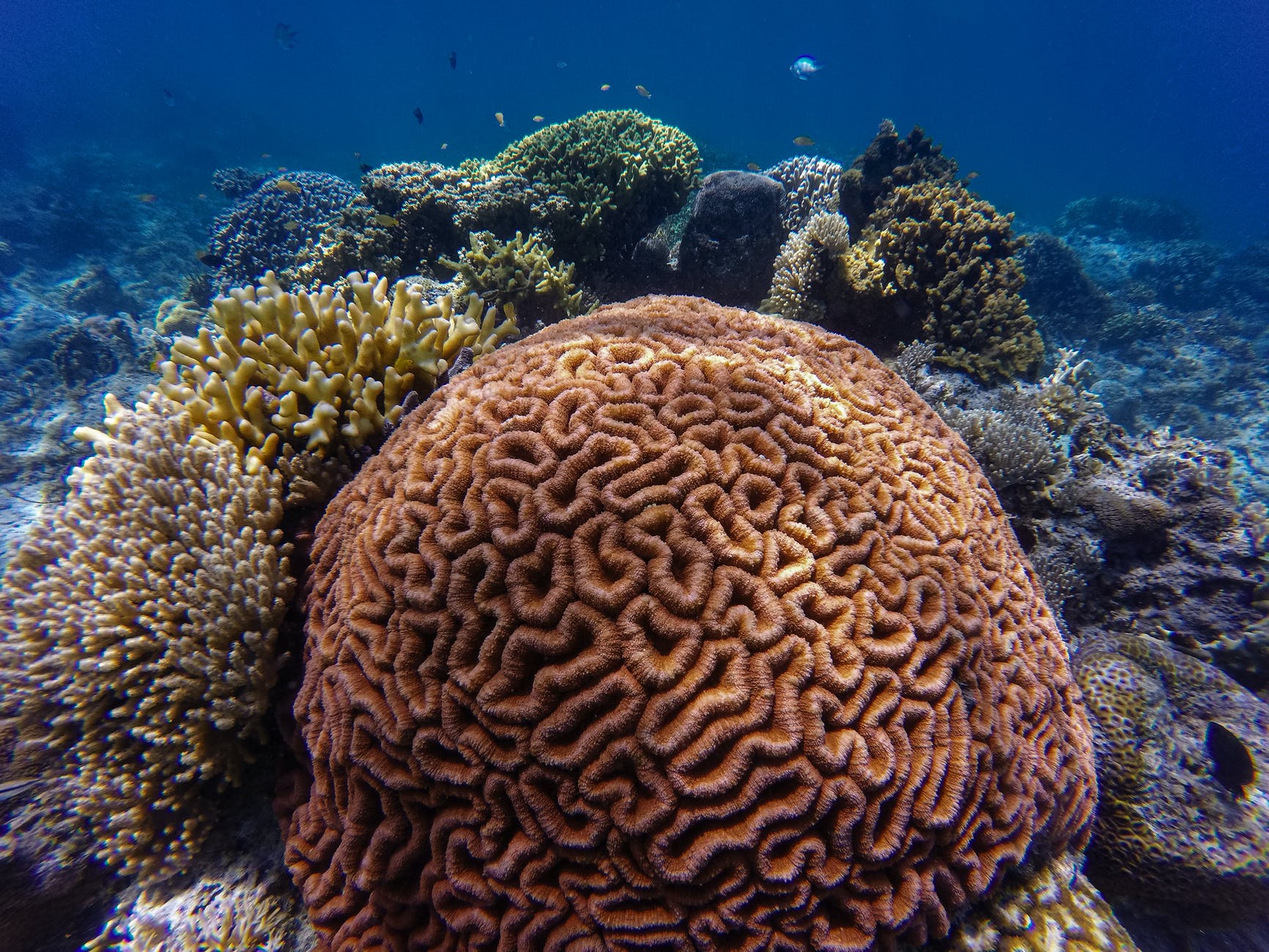
MARINE LARVAL ECOLOGY & RECRUITMENT LAB
NOVA SOUTHEASTERN UNIVERSITY
Dr. Joana Figueiredo
Aiming to help with the world’s oceans, one larva at a time
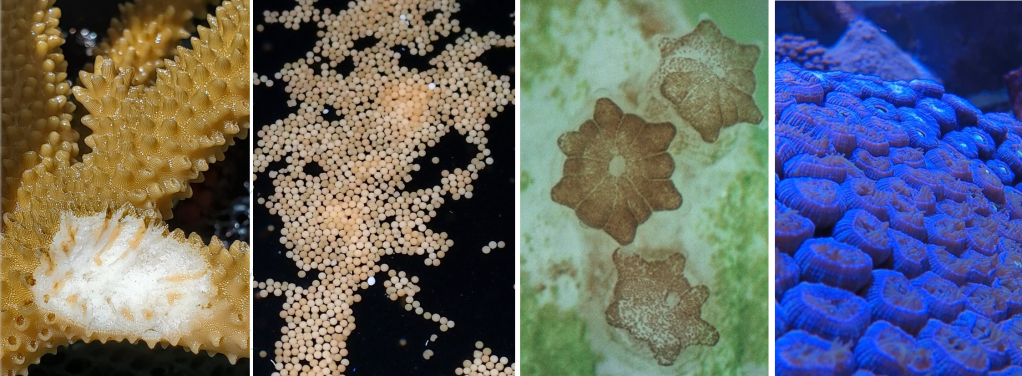

Research
We are studying how larval survival and settlement competency dynamics determine dispersal and connectivity of corals. Particularly, we are most interested in understanding how coral dispersal patterns will be altered by climate change. A better understanding of coral dispersal patterns, and how they might change with global warming, is essential to assist the design of effective marine reserve networks. More recently, we began assessing the extent and rate at which marine invertebrates may adapt and/or acclimate to the new environmental conditions. You can find us conducting research in Southern Florida, United States and Okinawa, Japan.
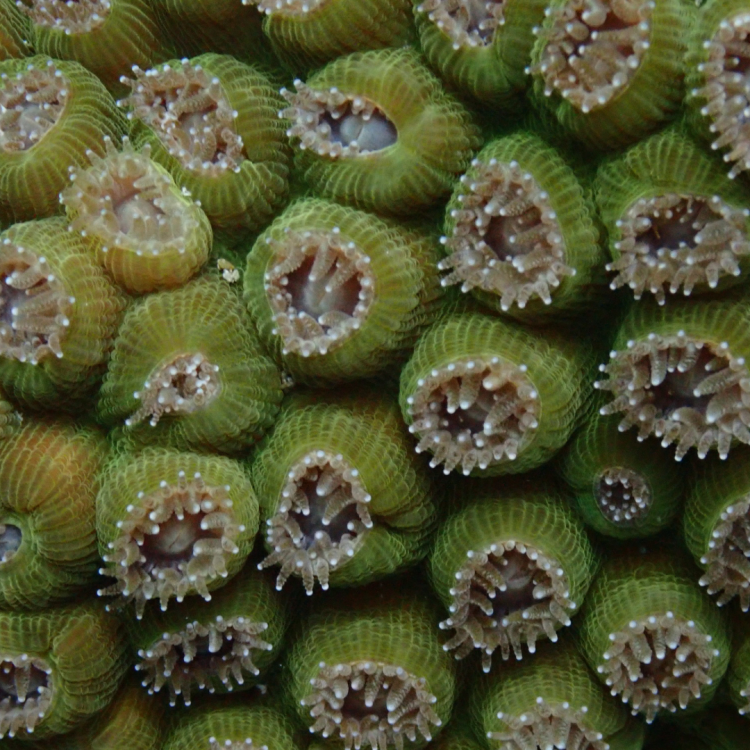
Lab Members
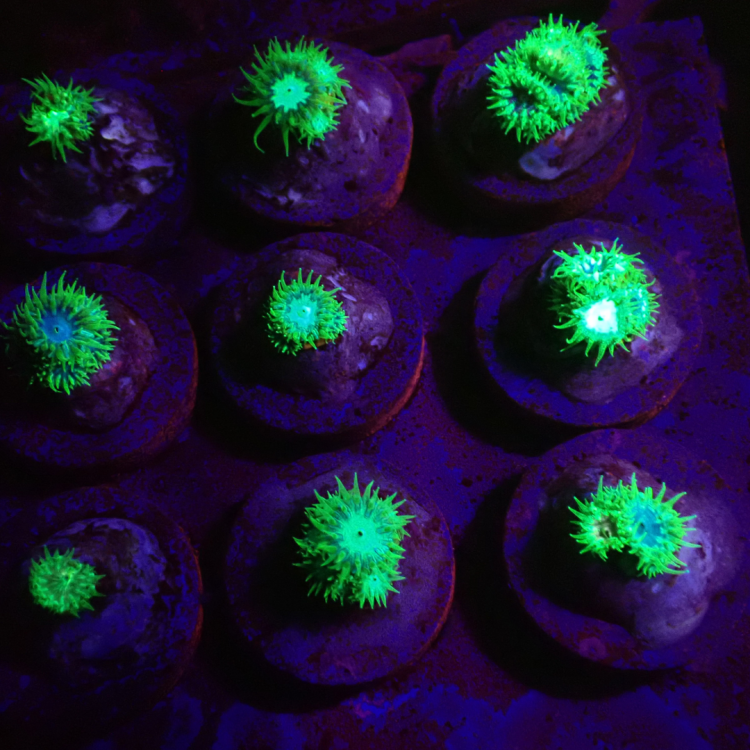
Projects
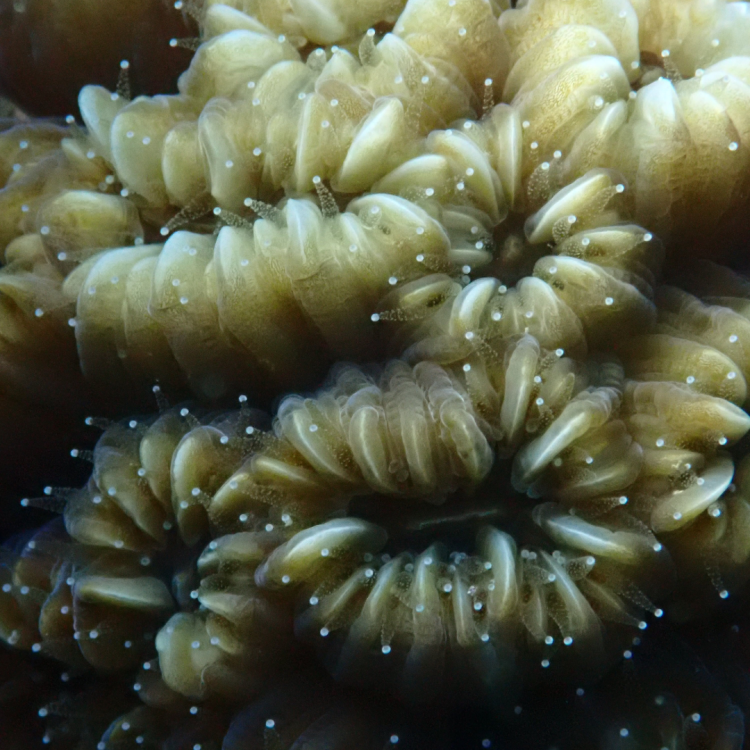
Publications
Follow us on Twitter & YouTube!
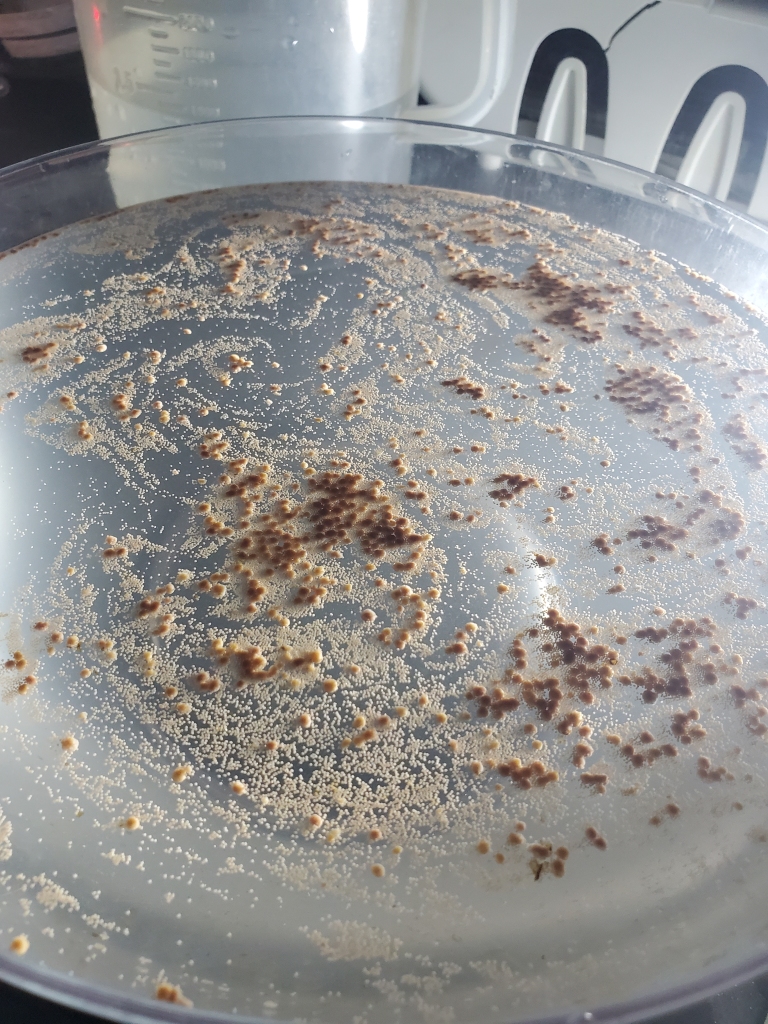
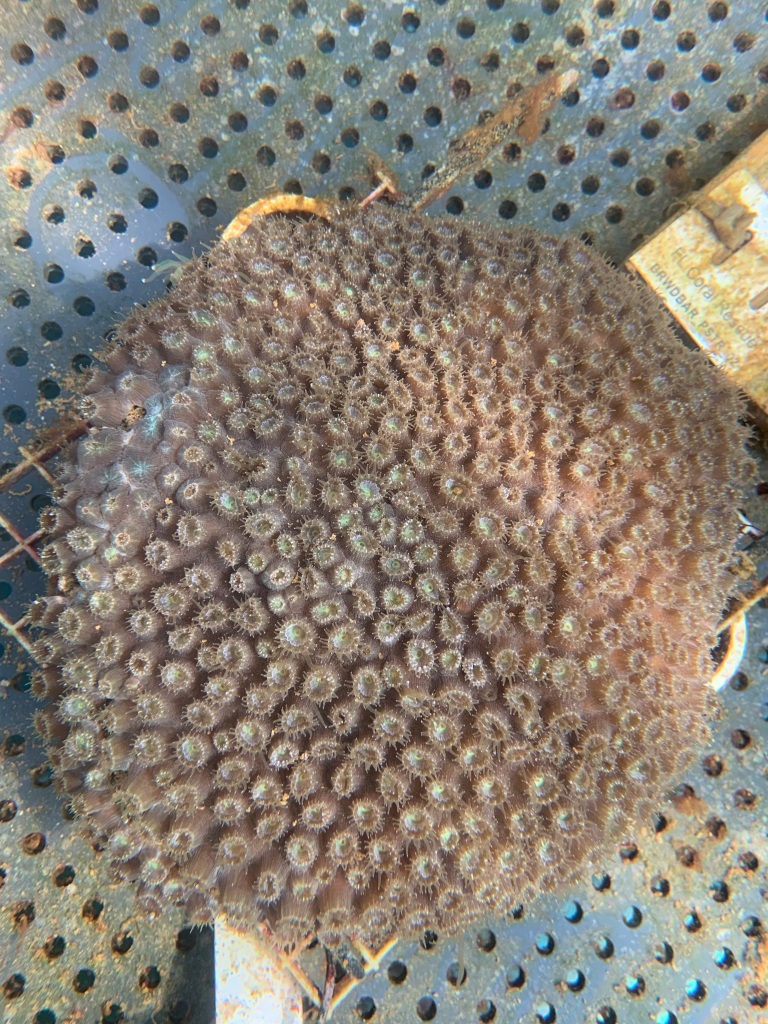
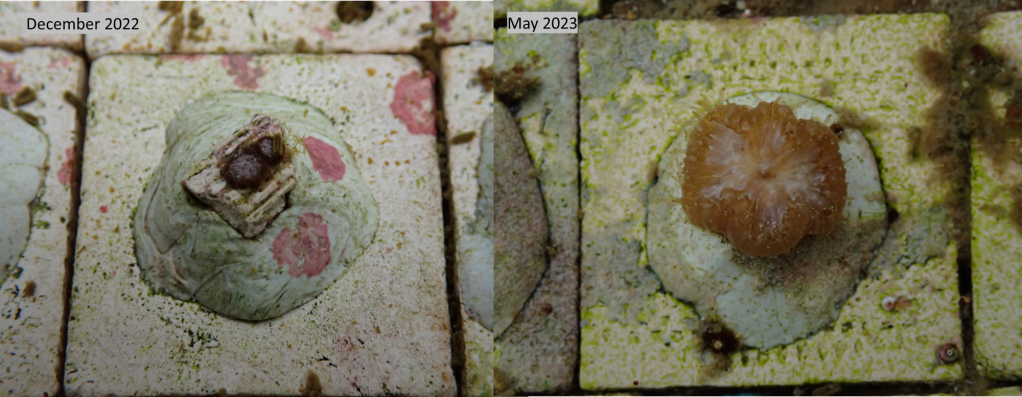
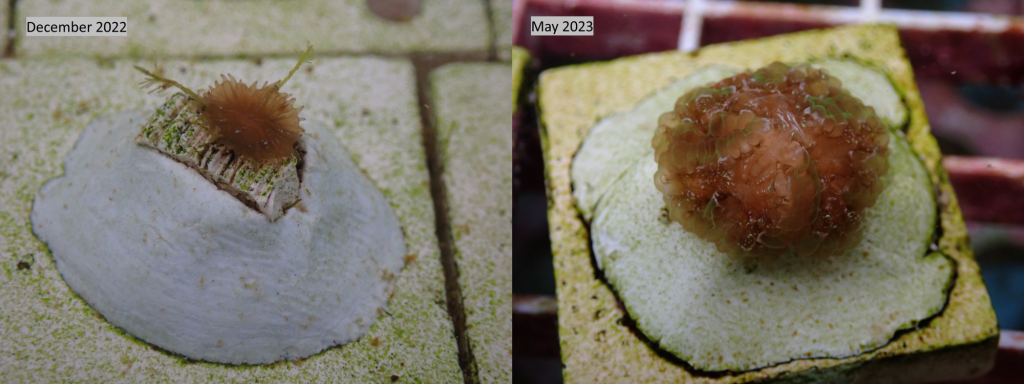
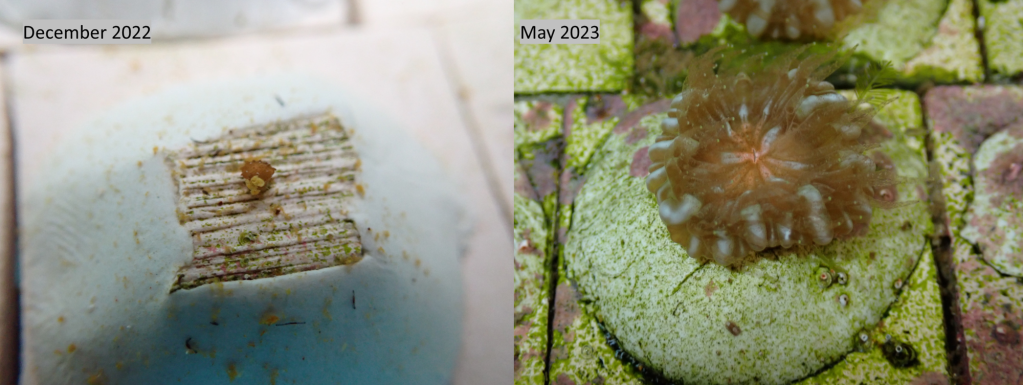

Facilities
Outside Facility
The outdoor nursery tanks are recirculating fiberglass raceways that are temperature controlled by one horsepower chillers and three 800w heaters to maintain optimal conditions for our experiments. The tanks also have a large biological filter area in the sump with a large protein skimmer to control nutrient levels and maintain excellent water quality. They are shaded with mesh cloth to reduce sun intensity and covered with a transparent plastic tarp to keep out rainwater to create optimal culture conditions for early life stage and adult corals. The wet lab is located outside the Guy Harvey Oceanographic Center building on the west side. The tanks serve as the holding area for our experimental organisms, such as scleractinian corals, Caribbean King crabs, and giant Tridacna clams.
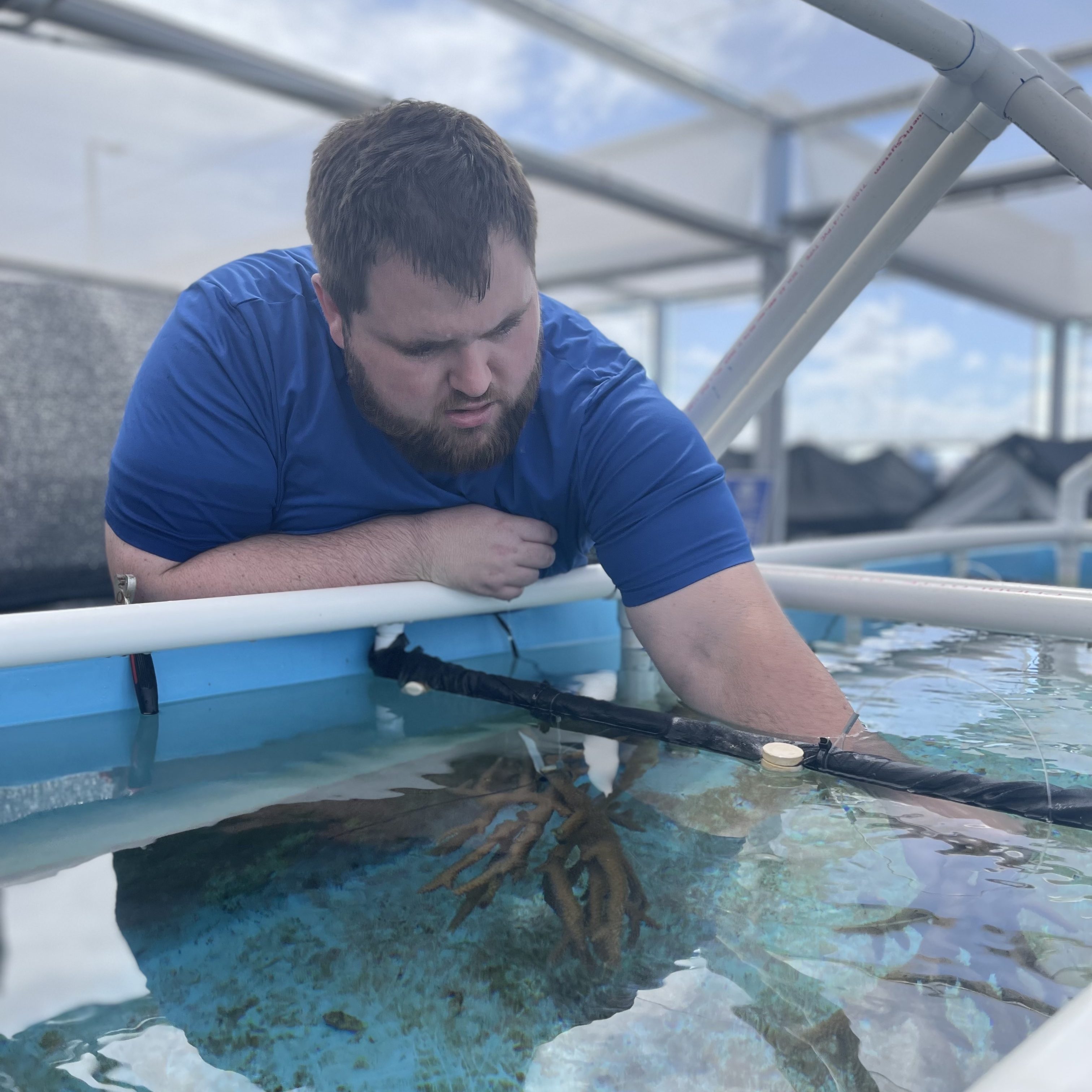
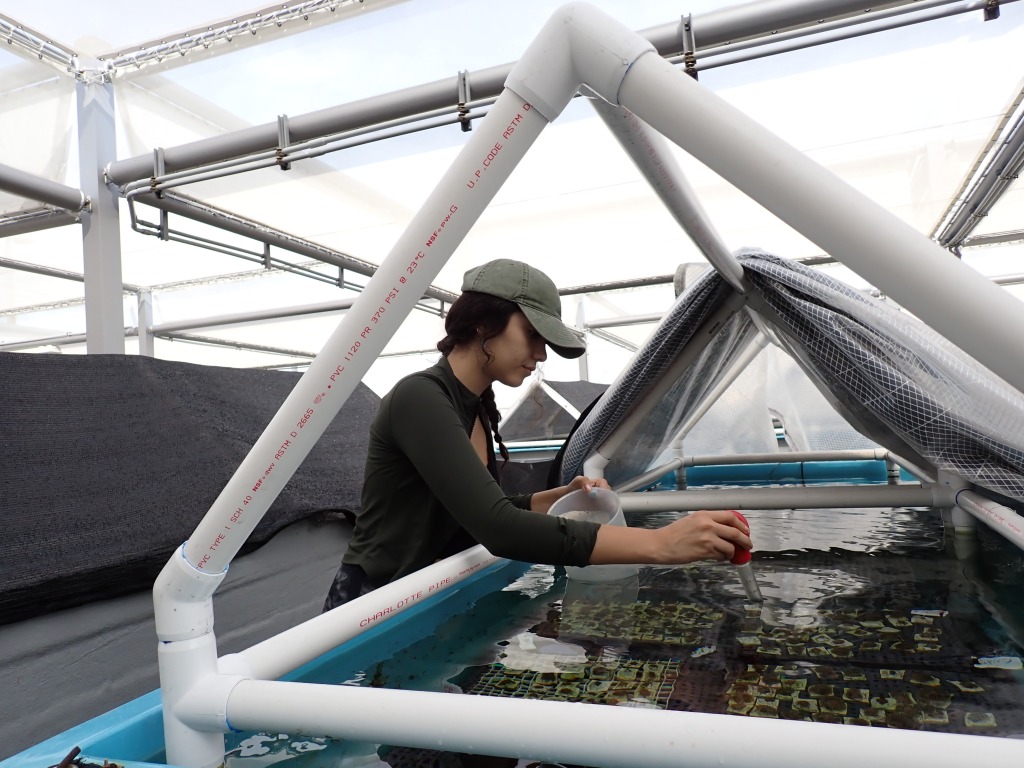
Inside Facility
The inside facility is a wet lab that houses space to conduct experiments. We have four fiberglass raceways which are set to mimic the annual temperature and photoperiod cycles of South Florida. Seawater taps feed directly into the lab which are then cleaned through our two seawater filtration systems. There is also direct access to RO and DI water. The lab is equipped with Olympus SZ61 dissecting microscopes with a Nightsea fluorescence adaptor kit and an Olympus CKX41 compound microscope equipped with a Lumen 200 Fluorescence Illumination system. Both microscopes work with an Olympus digital camera LC20 and cellSens imaging to photograph and measure data. The lights used on the coral tanks include Radion XR 30 Gen 5 and Gen 6 models. Pulse Amplitude Modulated Fluorometer (PAM) from Walz is used to monitor photosynthetic activity.
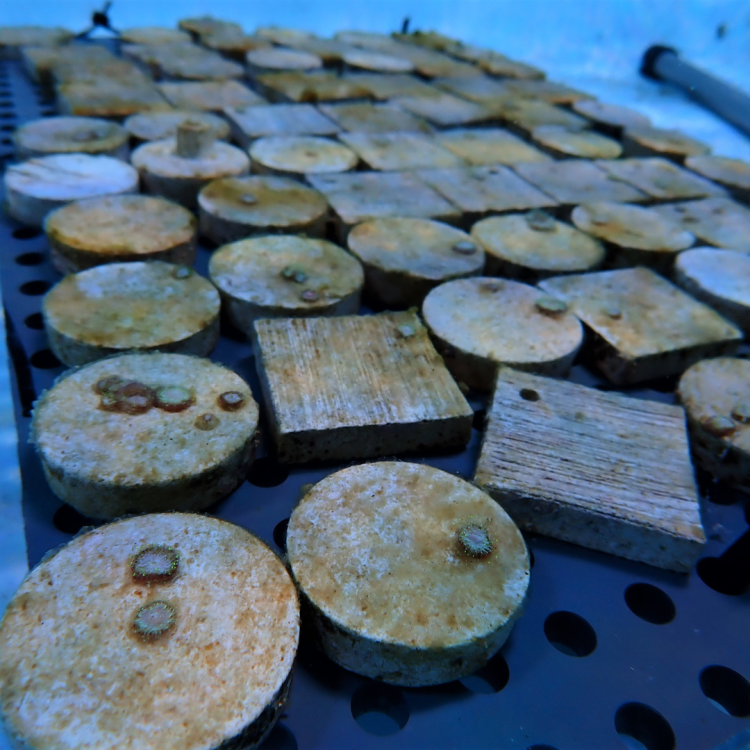
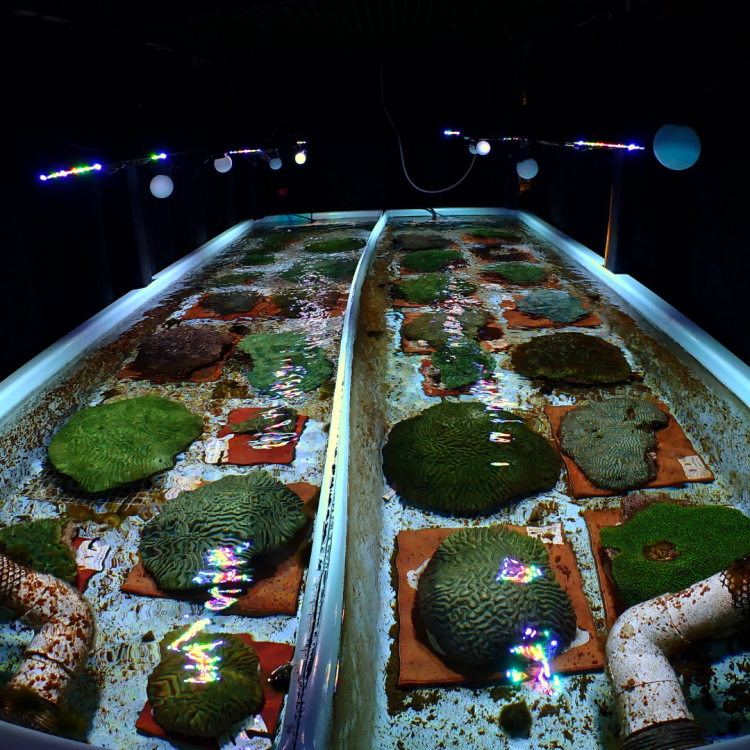
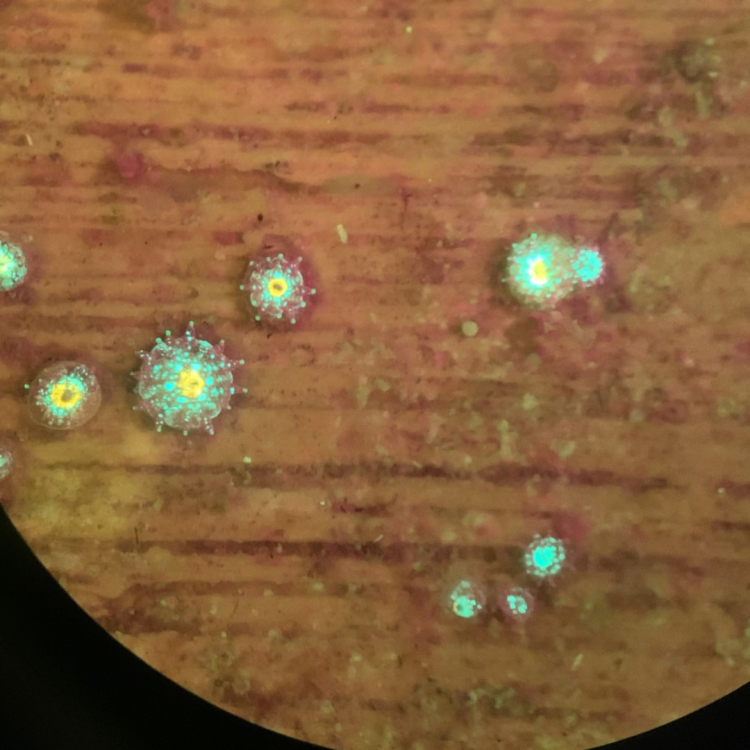
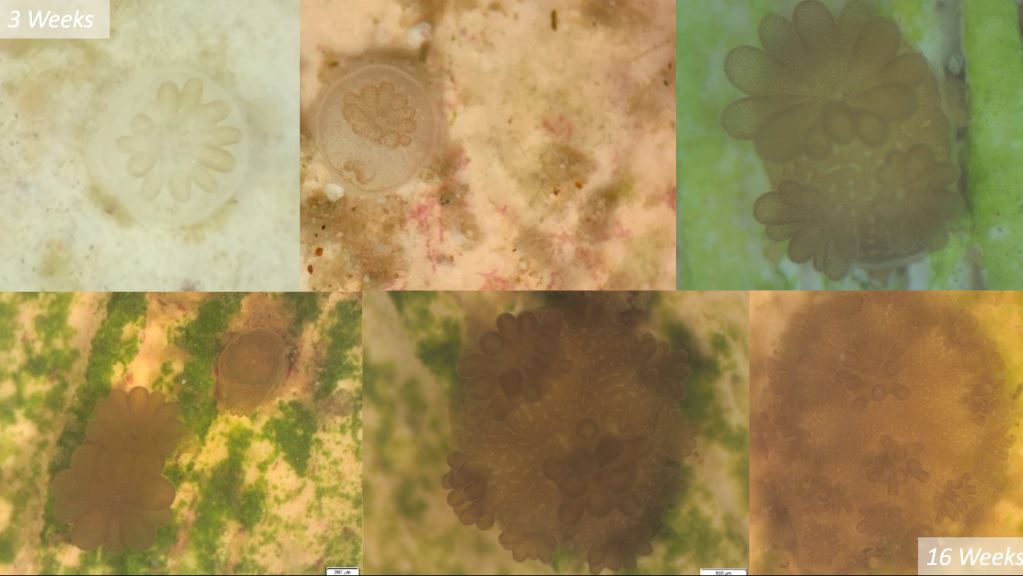
Check out our latest news!
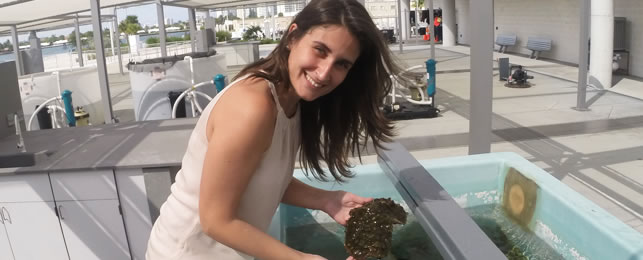
Courses taught by Dr. Figueiredo
Marine Larval Ecology
Most marine animals have a complex life cycle with a sessile or sedentary adult stage and a dispersive larval stage. This course will expose the students to the diversity of marine larval forms and increase their understanding on the environmental factors affecting larval survival, development, dispersal, settlement, recruitment and connectivity. We will study the implications of having a larval stage for the persistence and management of marine ecosystems, and how climate change and other human-induced disturbances on larvae may affect species persistence. Active classroom discussion on selected scientific articles is mandatory.
Aquaculture
This course will give the student an understanding of the basic principles of aquaculture, including production systems, water quality, nutrition, spawning, larval culture and grow-out, and culture methodologies of fish, reptiles, invertebrates (zooplankton, molluscs, crustaceans, corals) and algae. The course will consist on a series of lectures followed by readings for each learning topic and paper discussions. The students will have the opportunity to conduct hands-on activities associated with the culture and husbandry of animals.
Biostatistics
This graduate course will give introduce the most commonly used statistical tests and procedures to analyze biological and ecological data. The main objective is to prepare the students to identify the most correct statistics to analyze biological data, perform the statistical analysis in R and correctly interpret the results. Lectures will consist of short theoretical presentations followed by a lab where students will do guided exercises in R. Students will be required to do readings prior to the class on the theoretical basis of the theme of the week, and perform unguided exercises (homework) to cement knowledge.
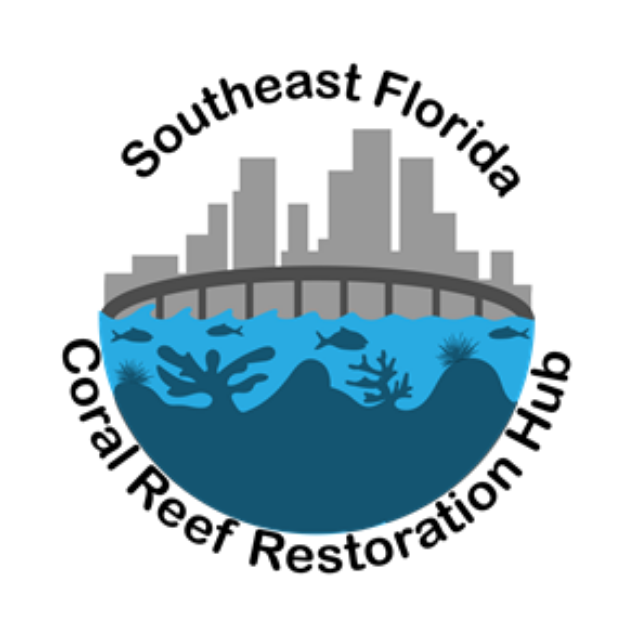
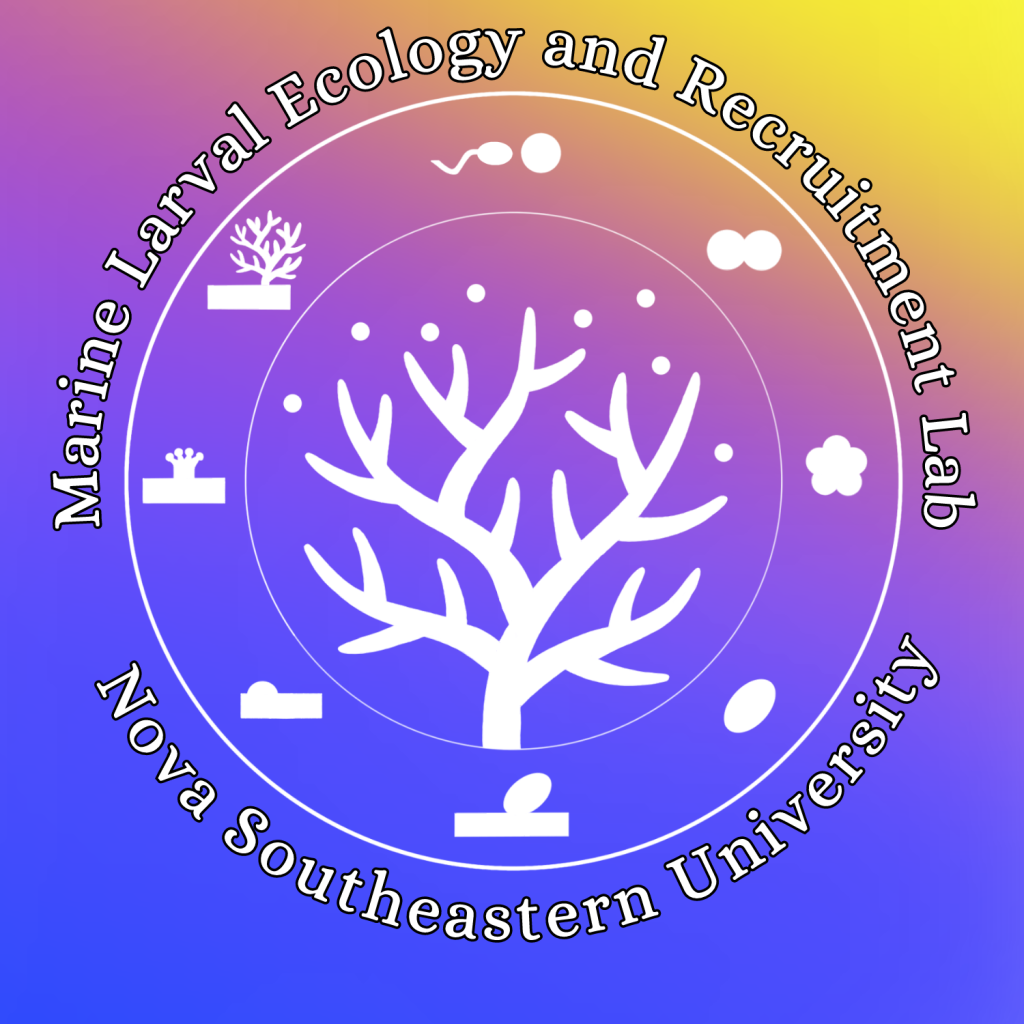
Marine Larval Ecology & Recruitment Lab
Nova Southeastern University
Guy Harvey Oceanographic Center
8000 N. Ocean Drive
Dania Beach, Florida 33004
United States
Joana Figueiredo, PhD
Associate Professor
jfigueiredo@nova.edu
